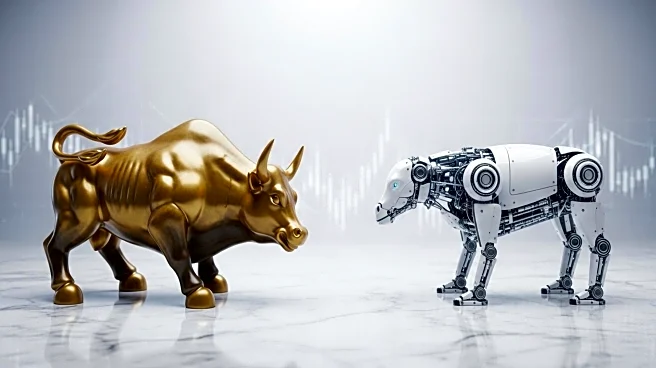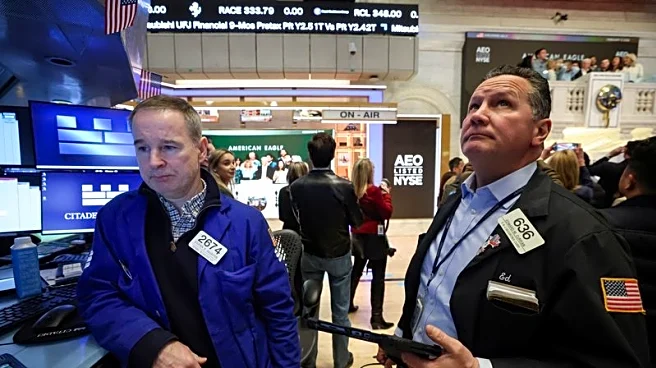What's Happening?
The Buffett Indicator, a measure of stock market valuation, has reached an unprecedented level of 217%, surpassing historical peaks during the Dotcom Bubble and the pandemic-era rally. This indicator compares the total value of publicly traded U.S. stocks to the nation's gross national product. Historically, Warren Buffett has warned that when this ratio approaches 200%, it suggests market overvaluation, likening it to 'playing with fire.' The current surge is driven by major technology companies investing heavily in artificial intelligence, which has led to high valuations. The S&P 500's price-to-sales ratio has also hit a record high of 3.33, further indicating potential overvaluation. Despite these signals, some experts argue that the U.S. economy's shift towards technology and intellectual property may justify higher valuations.
Why It's Important?
The record levels of the Buffett Indicator raise concerns about the sustainability of current stock market valuations. If the market is indeed overvalued, it could lead to corrections that impact investors and the broader economy. The tech-driven rally, fueled by AI investments, has created significant wealth but also heightened risks of volatility. Investors and policymakers must consider whether the current economic environment supports these valuations or if adjustments are necessary. The implications extend to economic policy, investment strategies, and financial stability, as a potential market correction could affect consumer confidence and spending.
What's Next?
As the Buffett Indicator continues to signal overvaluation, investors may become more cautious, potentially leading to shifts in market dynamics. Warren Buffett's recent actions, such as building a cash reserve at Berkshire Hathaway, suggest a defensive posture in anticipation of market changes. Stakeholders will closely monitor economic indicators and corporate earnings to assess whether current valuations are sustainable. The ongoing development of AI and its integration into various sectors will also play a crucial role in shaping future market trends.
Beyond the Headlines
The current situation highlights the evolving nature of the U.S. economy, which is increasingly driven by technology and innovation rather than traditional asset-intensive industries. This shift may require new metrics for evaluating market health and economic productivity. The ethical and cultural implications of AI's role in driving market valuations also warrant consideration, as they influence employment, privacy, and societal norms.












